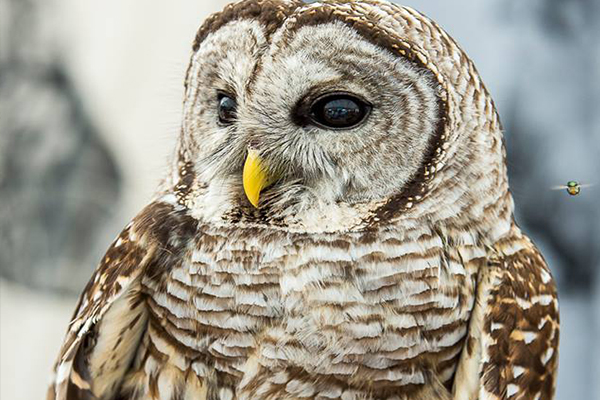
Wildlife Tips
Here are some simple tips for what you should or should not do should you find an animal in distress.
What You Should Do:
- If it is young, be sure that the parents are not nearby before you interfere. If the parents do not return within 1 or 2 hours (depending on the weather) then it may need rescuing.
- Try to return young to the nest. ALL parents will accept their young regardless of how they smell. It is NOT true that mothers reject their young when they smell human scent on them.
- Injured animals that need to be rescued immediately, must be handled with SAFTEY for the rescuer FIRST! They should be placed in a box with air holes, paper bag, or carrier. Keep the animal in a WARM, DARK, QUIET PLACE, and call a wildlife rehabilitator.
What You Should NOT Do:
- Give it food or water.
- Handle the animal, unless as necessary for rescuing.
- Attempt to raise young birds or mammals. This is a violation of state and Federal laws, and requires special training for proper handling and nutrition. One day without proper nutrition can deform or kill them. If the wild animal becomes "tame" with humans and pets, and then released into the wild, it will not survive, as they won't have a fear of natural predators. Many times the wild species of their kind will reject them, and may even kill them. Wild animals do not make good pets.
- Never ever touch or handle baby or adult raccoons, bats or skunks. They might have rabies. Rabies is a deadly disease that can be transmitted to humans or pets through contact with saliva. Once symptoms appear, there is no cure. Contact your local Health Department for more information.
- CAUTION regarding birds or prey: Birds of prey, herons, and adult mammals are EXTREMELY DANGEROUS, and need to handled by someone trained and qualified, such as; Wildlife Rehabber, Conservation Officer, or Nuisance Control Officer.
